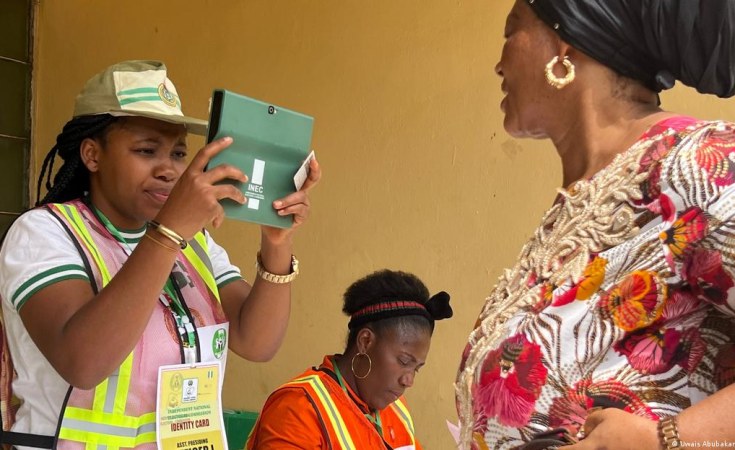Last week, the leader of the European Union Election Observation Mission, EU-EOM, Barry Andrews, issued the Mission's final report on the highly-disputed 2023 general elections in Nigeria, with some hard knocks while making recommendations for improved elections in the future.
The final report was basically an affirmation of its initial report issued barely two days after the presidential/National Assembly elections on February 25, 2023.
The final report noted the zeal with which Nigerians approached the election during the preparatory stages, as well as the economic, security and political atmospheres that prevailed which impacted voter behaviour. It identified six priority areas requiring immediate attention to clean up Nigeria's elections.
These included removing ambiguities in the electoral (which allowed the Independent National Electoral Commission, INEC, to change course and compromise the presidential election); making the appointment of INEC top officials more accountable to the public, ensuring real-time publication of election results and making them accessible to the public, providing greater protection for media practitioners on election coverage and showing more commitment to punishment of electoral offenders.
The INEC, which invited the EU-EOM and other observer missions (such as the African Union, ECOWAS, Commonwealth and others), said they would use the recommendations by all the observer missions to improve future elections in Nigeria.
President Bola Tinubu's Special Adviser on Special Duties, Communications and Strategy, Dele Alake, announced the government's rejection of the Mission's report, describing it as a "product of a poorly done desk job". President Tinubu, through Alake, claimed that due to the use of technology, the 2023 elections were "the most transparent and best organised elections since the return of civil rule in Nigeria".
We can understand the Tinubu government's interest in defending the election results announced in its favour by INEC's Chairman, Professor Mahmood Yakubu. Any other group would do the same. We all witnessed that happened during the elections and would rather keep our final views on it under wraps until the Presidential Election Petition Tribunal, PEPT, publishes its final verdict on the cases brought before it.
Suffice it to say that the EU-EOM was definitely the largest of all the missions (both local and foreign) that observed and published their findings of the 2023 general elections. It was the first to arrive in Nigeria on February 11, 2023 and continued to work on the details of its election observation mission till end of June. Meanwhile, the AU, ECOWAS, and Commonwealth election "observers" were mainly made up of politicians (former presidents) who stayed in posh Abuja hotels and issued "reports" that gratified the government in power.
Though the EU-EOM also has some European parliamentarians in its ranks, it deployed field officers and operated far more professionally than others in tune with the United Nations mandate on election observation.
We consider their report reliable and credible.


